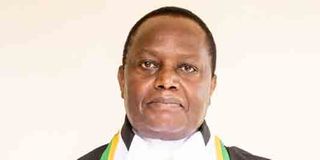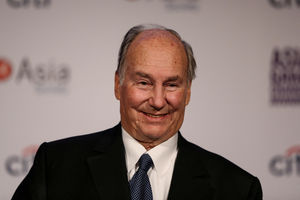African court mandate still limited, says senior judge

What you need to know:
There has been pressure to extend the jurisdiction of the court to cover crimes against humanity and war crimes, nonetheless, the African states have not unanimously agreed on the proposal.
Arusha. The jurisdiction of the African Court on Human and People’s Rights (AfCHPR) is still confined to human rights violations, a senior judge confirmed on Thursday.
There has been pressure to extend the jurisdiction of the court to cover crimes against humanity and war crimes, nonetheless, the African states have not unanimously agreed on the proposal.
“It’s upon the African Union (AU) member states to decide on extending the jurisdiction of the court,” said Justice Ben Kioko, the Vice President of the Arusha-based judicial organ.
He told journalists after launching a seminar for counsels accredited to the court that AfCHPR was still focused on protecting Africans from human rights violations.
Justice Kioko added that efforts would continue to put more pressure on countries, which have not ratified the protocol that established the court to do so through awareness campaigns. He said efforts would also be made to convince states which have ratified the protocol to sign a declaration, which would enable individuals and non-governmental organisations (NGOs) in their respective territories to access the court directly. Justice Kioko was responding to remarks made by the lawyers accredited to the court from various countries that the judicial organ of the AU was far from carrying out its mandate due to the anomaly.
They said with nearly a half of the AU members yet to ratify the protocol that established the institution, the court cannot take pride of carrying its duties effectively,
He added that the Legal Aid Fund, which was proposed to support litigants from across the continent seeking the services of the court, has not yet been in operation. He said none of the AU member states has contributed money for the cause.
According to him, Tanzania once promised to raise $100,000 (about Sh224 million) for the fund, but has yet to submit it.
The court was established 1998 when nearly all of the AU (then known as the Organisation of African Unity- OAU) appended their signatures for its creation.
However, to date only 30 countries have ratified the protocol to set up the institution out of the 54 member states with only eight having signed a declaration, which allowed individuals and NGOs to access the court directly.
Tanzania ratified the Protocol for the creation of the judicial organ on February 10, 2006 and signed a declaration accepting the competence of the court to receive cases from individuals and NGOs on March 10, 2010.
As of February 29 this year, the African Court had received 74 applications, 25 of which have been finalised. Four applications have been transferred to the African Commission on Human and People’s Rights.
The protocol for the establishment of AfCHPR came into force in January 2004 and the first judges were elected in 2006.
The court relocated to Arusha in 2007 from Banjul, Gambia, its temporary headquarters for some time.
Chad recently became the 30th country to ratify the protocol on the establishment of the African Court in late 2015.
Other countries which have ratified the protocol include Algeria, Benin, Burkina Faso, Burundi, Cameroon, Côte d’Ivoire, Comoros, Congo, Gabon and The Gambia.
Others are Ghana; Kenya, Libya, Lesotho, Malawi, Mali, Mauritania, Mauritius, Mozambique, Nigeria, Niger, Uganda, Rwanda, Western Sahara, Senegal, South Africa, Tanzania, Togo and Tunisia.
Only eight countries, including Tanzania, have to make a Declaration required under Article 34(6) of the Protocol to allow individuals and NGOs to bring cases directly before the Court. Without such Declaration, the Court would have no jurisdiction over cases brought by individuals and NGOs.
Since 2010, the Court has carried out continent-wide promotion programmes which have so far seen it undertake 27 sensitization visits and held 12 regional and continental seminars and conferences.




